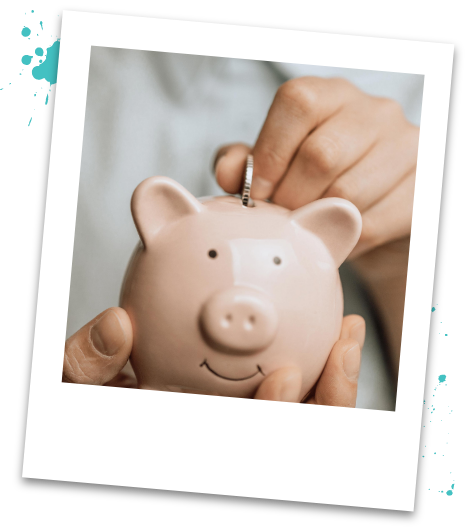Did your mother tell you that money can’t buy you happiness? Or health? – Well, let’s forget about the first one here, since the definition of happiness is very individual. As far as the second one is concerned: it seems you CAN buy health, or to be more precise, you surely can secure it, because your mental well-being will be in danger if your financial health becomes jeopardized. So what does that mean in times like these?
Let’s have a look first at what “financial health” is all about. In an article for “Forbes” magazine, financial planner and author Liz Frazier defined: “Financial health is […] the dynamic relationship of one’s financial and economic resources as they are applied to or impact the state of physical, mental and social well-being”.
So, your financial well-being is not just a result of your recent income. In fact, it’s a potential made up of the past (your savings, stocks etc.), the present (your turnovers), and the future (pension funds and other provisions for old age). If you have managed to put aside some money or to invest it with profit, if your recent income leaves you enough to even put aside a little more, and if you’re well prepared for old age to come, you’re fine. There’s nothing to worry about on the money front. Or is there? How much will be enough to get you through life unharmed in forty years? Nobody knows.
And that’s where the problem starts: the way people look at their assets is completely individual and depends on their view on life in general. So there will be people for whom even under best conditions the future will look bleak and grim. They will start to worry, and these worries will cause them stress, which sooner or later will kick their mental well-being off-balance. It’s the curse of money that some people will always worry about it, either because they fear they haven’t got enough to deal with every possible challenge or because they are afraid of losing it.


Then there are people who get into real trouble. Something happens with them or their job and they need to start depleting their savings – if they’ve got any. Maybe they haven’t.
Or maybe they’ve got enough money to live a decent life but not to finance the image they want to present to their social environment. Life can be pretty expensive if you’re only shopping for big labels, if you feel you need to copy influencers or other more or less famous people, and you’d rather die than be seen wearing the same clothes twice. Even credit cards are limited, and if you want one piece of each new collection, it’s easy to end up in debt. In the 21st century, everything is supposed to be “fluid”: life, jobs, personalities – but nothing is as fluid as money in a world of fake images.
It doesn’t matter in the end where it is rooted, it’s clear to see that worrying about money will easily set in motion a spiral of trouble, which of course will have an impact on a person’s mental well-being by causing permanent stress. That will affect both the professional and social performance, which will add even more stress and so on. Then after a while, permanent muscle tension, especially in the neck as well as in the back, will cause pain and may lead to sleeping problems. There might be trouble ahead with digestion or headaches, depending on the individual’s Achilles heel when it comes to permanent stress. Don’t let things get that far.
So what can be done?
Firstly, sit down and find out about your personal relationship with money. How much do you need to feel comfortable and secure? How much does money mean to you? Would you feel comfortable if you could no longer afford to buy certain things or engage in special activities? What are they?
Secondly, look at your financial health situation right now. Does it feel “healthy”? If not, what is missing? If you have identified what you need, where and how can you get it? Or where can you save money?
The last two questions need close investigation and some creative input. Check if you’ve got something that you may offer to other people for rent. And also, check if there are things which you would like to lay your hands on but that are not worth buying since you won’t need them often. In other words: things you may like to rent from somebody else.
A rental community like SHÄP may bring you money and save you money as well – funds you may like to add to your savings to support or secure your financial health and thus stabilize the material foundation of your mental well-being.

